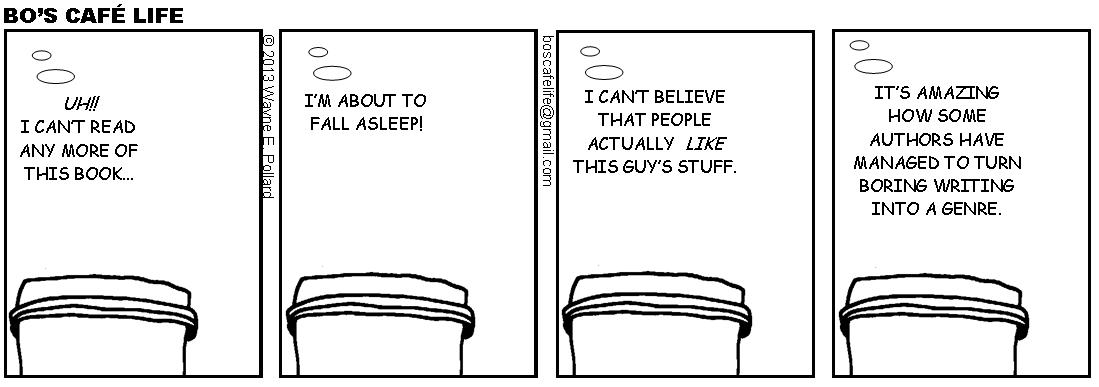I really have to get over this somehow. Other people manage to read papers without falling asleep. Why can't I?
I have just returned from a very useful couple of talks about writing - how to discipline yourself, and how to make a good job of your thesis. Major take-home messages:
-Write little and often (I am going to write first thing in the morning, which will also enable me to car pool with late risers)
-Be regimented in your writing if it works for you (which it probably does)
-Make sure you have a sound structure
-You are the expert in your small field, teaching others about it, but...
-You're not trying to get a Nobel prize.
As useful as they were, the talks snared me with a line which I have heard many times: that your thesis (or manuscript, or proposal) should be "pleasant to read".
I have read a few theses. One was pleasant to read (mostly because it was really cool at a basic level - radio-tracking tarantulas!). The others were interesting, intellectual, and soporific. Scientific writing isn't really designed to be pleasant to read. You are trying to convey a tiny discovery to your reader, and everything about it - what we knew before your study, why you did your study, how you did your study, what your results were, how you interpret them, and where you think future research should be headed. This is not rippingly good stuff. It is functional. Other people can read it, interpret your study, replicate it or use your findings to support their own research. Science scrutinises the smallest crumbs of reality, which themselves seem meaningless, but together can be built into a bigger picture of the truth. The crumbs themselves are often rather dull. The bigger picture, reported in a scientific review, or on a blog, or in a piece of science journalism, sounds much more exciting.
I mentioned, at the end of the talks today, that I find scientific papers (and theses) dull to read (actually I find them extremely dull). People gasped, and disagreed. Surely I can't be alone in my lack of eagerness to read thick paragraphs of jargon, wandering around a single (often uninteresting but necessary) point. But maybe I am, or I don't have the intelligence to process sentences that are heavy with pointlessly pretentious words such as "utilise". One person suggested reading only the abstract, but I was taught as an undergrad that that is a heinous crime. Reading only the abstract does not enable you to judge the validity of the claims that the paper is making.

As a PhD student, I am not at the cutting edge of some profound, worldwide research initiative. I have a tiny project that involves measuring the diameters of trapdoor spider burrows, and hours of pipetting in a lab. My research will hopefully produce some evidence that supports either vicariance or dispersal as the major reason why Cantuaria show their current distribution. It will not prove or disprove the amount of land present during the Oligocene drowning period, but it will provide some evidence which may be combined with the current growing body of evidence to indicate how much land was there (and a few other things about NZ biota, spiders, and dispersal versus vicariance). There will be about seven different messages from my thesis which could be presented as bullet points, but I must also review current knowledge, and write about how and why I did things the way that I did, and how they can be interpreted and what people should be researching in the future.
I hope it will be pleasant to read!
